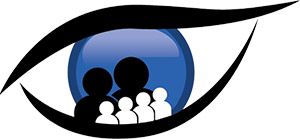 Vision correction has many options from glasses and contacts to surgeries like LASIK, PRK and intraocular lenses. Each has its benefits and disadvantages. Contact lenses are a safe, convenient option for many patients when fit appropriately by an optometrist. Patients, including children and seniors and everyone in between, can benefit for contact lenses since they can help correct nearsightedness (myopia), farsightedness (hyperopia), astigmatism, bifocals (presbyopia), and abnormal cornea shape due to conditions like keratoconus. There are daily replacement lenses for the ultimate in eye health and comfort, bi-weekly and monthly for patients willing to take the extra time and effort to clean and maintain their lenses, and extended wear monthly lenses for those needing longer than 24 hours of wear. Some lenses provide additional UV protection but should still be complimented with appropriate sunwear to provide the best overall protection for your eyes.
Vision correction has many options from glasses and contacts to surgeries like LASIK, PRK and intraocular lenses. Each has its benefits and disadvantages. Contact lenses are a safe, convenient option for many patients when fit appropriately by an optometrist. Patients, including children and seniors and everyone in between, can benefit for contact lenses since they can help correct nearsightedness (myopia), farsightedness (hyperopia), astigmatism, bifocals (presbyopia), and abnormal cornea shape due to conditions like keratoconus. There are daily replacement lenses for the ultimate in eye health and comfort, bi-weekly and monthly for patients willing to take the extra time and effort to clean and maintain their lenses, and extended wear monthly lenses for those needing longer than 24 hours of wear. Some lenses provide additional UV protection but should still be complimented with appropriate sunwear to provide the best overall protection for your eyes.
Even though contact lenses can be purchased in many locations including on-line like any other commodity, they still require a prescription in most provinces including Ontario. This prescription takes into account many factors including visual acuity and impact of the lens on the health of the eye. Using a poor fitting contact lens has the potential to create an unhealthy eye which can lead to serious vision problems including permanent loss of vision.
During a contact lens assessment, the optometrist will determine the best lens parameters, wearing and cleaning schedule including baseline data to determine the impact of the contact lens on the normal health of your eye.
Existing patients who wear contact lenses will be assessed for proper fit and vision. If they are currently fit in the optimal lens for their prescription and health of the eye an updated prescription will be issued during their comprehensive eye examination. This same level of service may be available to new patients if they present with their current lenses, a copy of their previous prescription and no change in the lens brand or type is necessary.
Potential contact lens patients and those requiring a refit into a different type or brand require additional office time to trial the new lenses and receive complete instruction on contact lens handling, cleaning and wearing schedule. Once there has been a successful trial period a contact lens prescription will be provided.
Specialty contact lens fitting including soft toric multifocals and rigid gas permeable (RGPs) require significant additional office time and testing to ensure the optimal fit. Education on handling, cleaning and replacement schedule is handled by the optometrist personally. Due to the nature of these custom lenses the initial set of lens must be purchased through this office and upon request a copy of the parameters is available to patients. Since these are custom lenses other opticals may be unable to duplicate the exact prescription and fit necessary to provide the optimal wearing experience, so Dr. Saari suggests only purchasing these custom lenses through the office that fit them or being refit by another qualified optometrist or optician.
As with any prescription, patients have the option to purchase their lenses at the location of their choice. Dr. Saari believes that a box of contacts is no different than any other box you can purchase from any store but he knows that the professional service is the most important aspect of a successful contact lens patient. He monitors contact lens pricing at least twice a year to ensure his patients are receiving the best value for their money and he will match any Canadian advertised price on the same brand and power.
Contact lenses assessments are not covered under provincial health insurance (OHIP) for any reason and contact lenses are generally not a benefit of ODSP or Ontario Works.





 Closed until 9am on Monday
Closed until 9am on Monday
